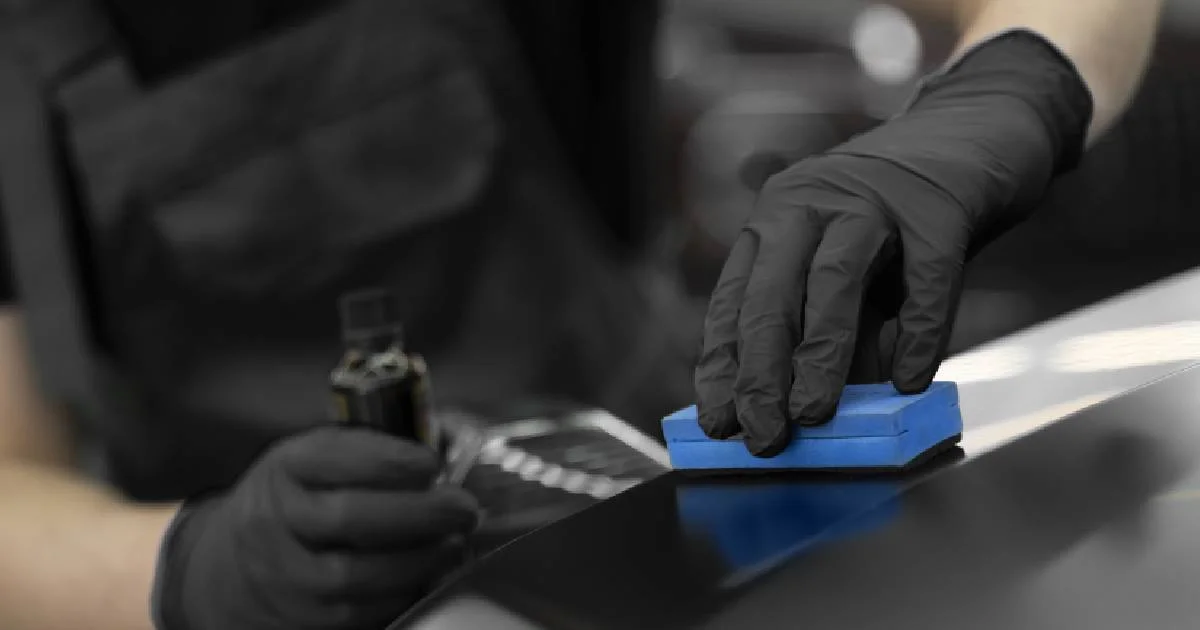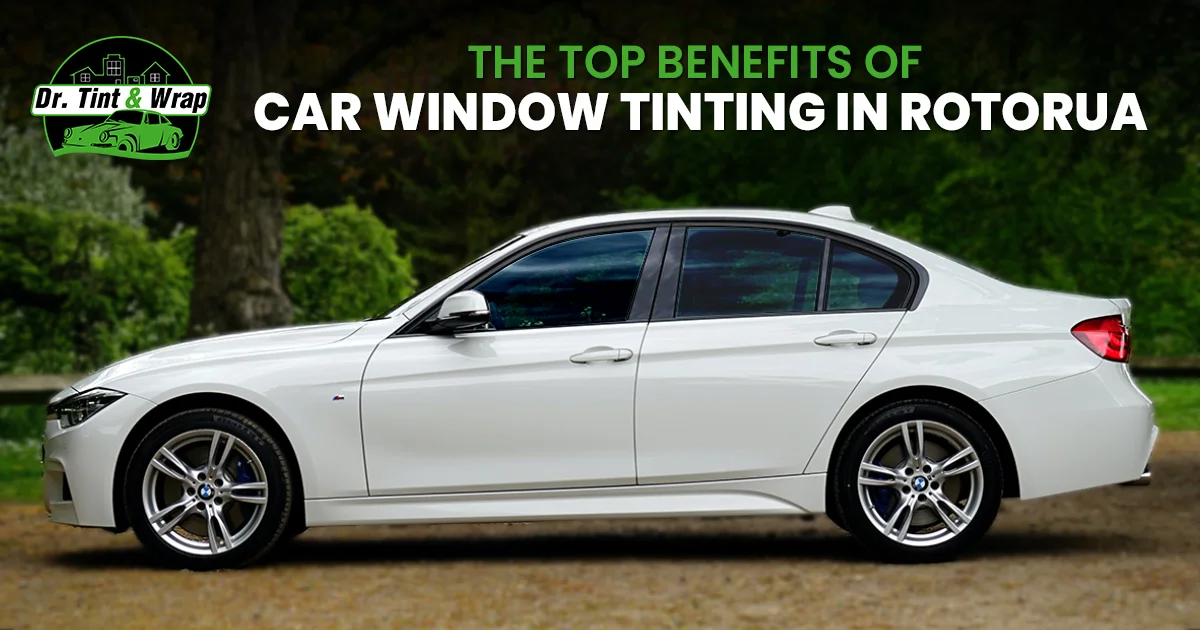
How Much Does A Ceramic Coating Cost?
07 Mar 2024, By AdminIn recent years, automotive enthusiasts and car owners alike have been raving about the benefits of ceramic coatings. This revolutionary protective solution has gained popularity for its ability to enhance a vehicle's appearance and provide long-lasting protection. However, one common question that often arises is, "How much does a ceramic coating cost?" In this blog, we will delve into the factors influencing the cost of ceramic coatings and help you understand what to expect when considering this investment for your vehicle.
Understanding Ceramic Coating
Before we dive into the cost, let's briefly understand what ceramic coating is. Ceramic coating is a liquid polymer applied to the exterior surfaces of a vehicle. Once cured, it forms a protective layer that shields the paint from various environmental contaminants such as dirt, bird droppings, UV rays, and more. The result is a glossy finish and enhanced durability that can last for several years.
Factors Influencing Cost
- Type of Ceramic Coating: The market offers a range of ceramic coatings with varying quality and durability. Entry-level coatings may be more affordable, but they might not offer the same level of protection as high-end options. Premium ceramic coatings often come with advanced features such as self-cleaning properties and increased resistance to harsh elements.
- Brand Reputation: Established and reputable brands in the ceramic coating industry tend to charge higher prices. This is often because they invest heavily in research and development to create cutting-edge formulations that outperform their competitors.
- Professional Application vs. DIY Kits: Another significant factor in the cost of ceramic coating is whether you opt for professional application or a do-it-yourself (DIY) kit. Professional application by certified detailers can be more expensive, but it ensures a high-quality and precise coating. DIY kits are generally more affordable but may not provide the same level of expertise and longevity.
- Preparation and Correction: The condition of your vehicle's paint before applying the ceramic coating can also impact the overall cost. If your car requires extensive paint correction, which involves removing imperfections like swirl marks and scratches, the preparation process becomes more labor-intensive and, consequently, more expensive.
- Size and Type of Vehicle: Larger vehicles, such as SUVs and trucks, will naturally cost more to coat than smaller cars due to the increased surface area. Additionally, the type of vehicle, whether it's a luxury car or a daily commuter, may influence the pricing.
In conclusion, the cost of ceramic coating varies based on several factors, including the type of coating, brand reputation, application method, vehicle size, and paint condition. While it may seem like a significant investment upfront, many car owners find that the long-term benefits, including enhanced aesthetics and protection, outweigh the initial cost.
Before making a decision, it's crucial to research different ceramic coating options, read reviews, and consider your budget. Whether you choose a professional application or a DIY kit, investing in ceramic coating can ultimately contribute to the longevity and resale value of your vehicle, making it a worthwhile consideration for automotive enthusiasts and those looking to protect their investment.

Choosing the Right Window Tint for Your Vehicle in Rotorua: What You Need to Know
07 Mar 2024, By AdminRegarding enhancing your vehicle's aesthetics and improving your driving experience in Rotorua, car window tinting is a popular choice among vehicle owners. The process of applying a thin layer of film to your car's windows offers numerous benefits, from reducing glare and UV radiation to providing increased privacy. However, choosing the right window tint for your car in Rotorua is crucial to ensure compliance with local regulations and achieve the desired results. In this blog, we will explore the key factors to consider when opting for car window tinting in Rotorua and why selecting a reputable service provider is essential for a successful installation.
1. Familiarize Yourself with Local Regulations
Before diving into the different types of window tints available, it's essential to understand the specific regulations governing car window tinting in Rotorua. New Zealand has strict laws regarding the darkness levels of window tints, which vary for different windows on the vehicle. Compliance with these laws is crucial to avoid legal complications and ensure a safe driving experience.
2. Types of Window Tints
Car window tints come in various materials, each offering different benefits and appearances. The most common types of window tints include:
a) Dyed Window Tinting: This type of tint uses multiple layers of dye to absorb solar heat and reduce glare. Dyed window tints are generally more affordable but may fade over time.
b) Metalized Window Tinting: Metalized tints are known for their heat-rejecting properties. They are durable, block UV rays effectively, and provide a reflective appearance. However, they may interfere with electronic signals like GPS and cell phone reception.
c) Carbon Window Tinting: Carbon tints are a premium option, offering superior heat rejection, reduced fading, and a sleek matte appearance. They do not interfere with electronic signals and are less prone to bubbling or discolouration.
d) Ceramic Window Tinting: Ceramic tints are the top-of-the-line choice, providing excellent heat reduction without affecting electronic devices. They also offer maximum UV protection and do not fade over time. However, they tend to be more expensive than other types of tints.
3. Consider Your Needs
While all window tints provide benefits such as heat reduction and UV protection, your specific requirements and preferences will help you choose the best option. If you're primarily concerned about cost-effectiveness, dyed or metalized tints may be suitable. For a balance between performance and aesthetics, carbon tints are an excellent choice. If budget is not a concern and you want the best of the best, ceramic tints are the way to go.
4. Seek Professional Installation
Professional installation is crucial to achieve optimal results regardless of the type of window tint you choose. A reputable car window tinting service in Rotorua will have skilled technicians who understand local regulations and can ensure a flawless application. DIY tinting or low-quality installation might lead to bubbling, peeling, or improper tint darkness, which not only looks unsightly but can also hinder visibility and compromise safety.
Car window tinting in Rotorua can be a game-changer for your vehicle, providing various benefits ranging from improved aesthetics to increased comfort and privacy. However, it's vital to educate yourself on local regulations, explore the different types of window tints available, and select a reliable service provider to ensure a successful installation. Dr. Tint & Wrap Rotorua is the ideal choice for your vehicle's window tinting needs in Rotorua, offering expert service and top-quality products to ensure optimal results. With their experienced team and commitment to customer satisfaction, you can trust them to provide the best window tinting solution for your car.
.webp)
The Future of Car Care in Rotorua: How Ceramic Coating is Revolutionizing Vehicle Protection
07 Mar 2024, By AdminIn the picturesque city of Rotorua, where natural beauty meets modern living, car enthusiasts and everyday drivers alike are experiencing a revolution in vehicle protection. The automotive industry has witnessed significant advancements over the years, and one innovation that has captured the attention of Rotorua's residents is ceramic coating. This cutting-edge technology is transforming the way vehicles are cared for, ensuring they remain in pristine condition even in the harshest of environments. In this article, we delve into the world of ceramic coating in Rotorua and explore how it is shaping the future of car care.
The Essence of Ceramic Coating
Ceramic coating, often referred to as nanocoating, is a protective layer applied to a vehicle's exterior. Unlike traditional wax or sealant, ceramic coatings are infused with nanoparticles that bond with the vehicle's paint, forming a durable and hydrophobic barrier. This barrier offers remarkable protection against environmental contaminants, UV rays, bird droppings, tree sap, and even minor scratches. With Rotorua's diverse climate and the challenges it poses to vehicles, the ceramic coating has emerged as an indispensable solution.
Rotorua's Unique Environment and Car Care Challenges
Rotorua's picturesque landscapes and geothermal wonders attract visitors from around the globe, but its unique environment can be harsh on vehicles. The city experiences everything from intense sunlight and heat to sudden temperature changes and airborne pollutants. Traditional car care methods often fall short in providing comprehensive protection against these challenges. This is where ceramic coating Rotorua comes into play.
Advantages of Ceramic Coating
- Unmatched Protection: Ceramic coatings create a strong shield that prevents dirt, grime, and pollutants from bonding to the vehicle's surface. This ease of cleaning helps maintain the car's appearance and reduces the frequency of washes.
- Enhanced Aesthetics: Rotorua's vehicles can maintain their showroom shine for years with ceramic coatings. The coating's hydrophobic properties cause water to bead up and roll off, taking contaminants with it and leaving the vehicle looking pristine.
- UV Resistance: The harsh New Zealand sun can cause paint fading and oxidation over time. Ceramic coatings offer excellent UV protection, helping the paint retain its vibrancy and preventing long-term damage.
- Chemical Resistance: The geothermal activity in Rotorua can sometimes release chemicals into the air that may harm a vehicle's paint.Ceramic coatings provide an effective barrier against these chemicals, preventing etching or staining.
- Scratch and Swirl Resistance: While ceramic coatings won't make a vehicle completely impervious to scratches, they do offer an added layer of defence against minor abrasions and swirl marks.
The Application Process and Longevity
Ceramic coating application requires precision and expertise. Professional detailers in Rotorua are skilled in preparing the vehicle's surface, applying the coating, and ensuring an even and consistent finish. The process involves meticulous cleaning, polishing, and sometimes paint correction to achieve the best results. When applied correctly, ceramic coatings can last for several years, far outlasting traditional waxes and sealants.
Investing in the Future of Car Care
As Rotorua's automotive scene continues to evolve, so does the approach to car care. Ceramic coating has emerged as a game-changer, offering unparalleled protection against the unique challenges posed by the city's environment. By investing in a ceramic coating for their vehicles, Rotorua's residents are ensuring that their cars not only retain their beauty but also stand the test of time. The future of car care in Rotorua is being reshaped by the transformative power of ceramic coatings. This advanced technology provides a comprehensive solution to the city's diverse environmental challenges, offering unmatched protection, aesthetic enhancement, and long-lasting results. As the automotive industry continues to progress, one thing is clear: the ceramic coating is here to stay, revolutionizing the way we protect and preserve our vehicles in the stunning city of Rotorua. Dr. Tint stands at the forefront of vehicle care in Rotorua, offering state-of-the-art ceramic coating services that provide unrivaled protection and a lasting sheen for vehicles. With a commitment to excellence, Dr. Tint brings the future of car care to Rotorua's residents, ensuring their vehicles stay pristine amidst the city's unique environmental challenges.

The Top Benefits of Car Window Tinting in Rotorua
07 Mar 2024, By AdminIn the picturesque city of Rotorua, where stunning landscapes meet abundant sunshine, car window tinting has become more than just a trend—it's a practical necessity. Whether you're a local or a visitor, understanding the benefits of car window tinting in Rotorua is essential for a comfortable and protected driving experience. In this blog, we'll delve into the top advantages of car window tinting in Rotorua, focusing on the keyword "Car Window Tinting Rotorua."
1. UV Protection: Shielding You and Your Car Interior
Rotorua is known for its sunny weather, and with the sun comes harmful UV rays. Car window tinting is your first line of defense against these rays, as it can block a significant portion of them. Not only does this protect your skin from potential damage during your drive, but it also safeguards your car's interior from fading and deterioration caused by prolonged sun exposure.2. Enhanced Privacy: Peace of Mind on the Road
Privacy is a valuable asset, especially when driving through the bustling streets of Rotorua. Window tinting provides an added layer of privacy by making it harder for prying eyes to see into your vehicle. This added security ensures your personal space remains personal, whether you're stuck in traffic or parked in a busy area.
3. Heat Reduction: Stay Cool Even on the Hottest Days
Rotorua's summers can be scorching, and the inside of your car can quickly turn into an oven. Car window tinting is your ally in staying cool. By blocking a significant portion of the sun's heat, tinted windows help regulate the temperature inside your vehicle, ensuring a more comfortable ride even during the hottest days.
4. Glare Reduction: Clearer Visibility, Safer Driving
Glare from the sun can be blinding and dangerous while driving. Car window tinting in Rotorua helps reduce glare, providing better visibility and reducing the strain on your eyes. This results in safer and more comfortable driving conditions, especially during sunrise and sunset.
5. Interior Preservation: Keep Your Car Looking New
Rotorua's sun can be harsh on your car's interior, causing it to fade and deteriorate over time. Window tinting acts as a protective shield, preventing sun damage to your dashboard, upholstery, and other interior components. This preservation not only keeps your car looking newer for longer but also maintains its resale value.
6. Energy Efficiency: Reduced Air Conditioning Use
With car window tinting in Rotorua, you'll find yourself relying less on your car's air conditioning system. This reduced need for cooling can lead to improved fuel efficiency and savings at the pump, all while reducing your carbon footprint.
7. Customization: Personalize Your Ride
Car window tinting isn't just practical; it's also an opportunity to customize your vehicle. You can choose from various tint shades and styles to achieve the look you desire while still enjoying all the functional benefits.
Car window tinting in Rotorua isn't just a luxury; it's a practical investment that enhances your driving experience and protects both you and your vehicle from the challenges posed by the city's climate. From UV protection to privacy and heat reduction, the benefits are clear. So, if you want to enjoy safer, more comfortable, and stylish drives through Rotorua, consider car window tinting as a valuable addition to your vehicle. Experience the advantages of "Car Window Tinting Rotorua" firsthand and make the most of your time on the road.
